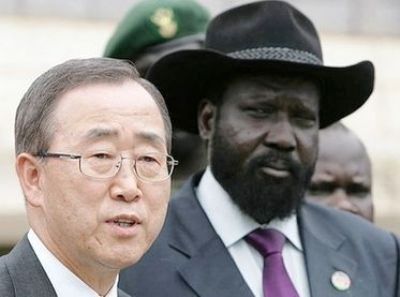Ki-moon urges S. Sudan to cooperate with UN workers
July 13, 2015 (ADDIS ABABA) – The United Nations secretary general, Ban Ki-moon has urged South Sudanese authorities to fully cooperate with its mission (UNMISS) by providing support to enable humanitarian workers deliver and have unfettered access to people.

The current situation, he said, has put the UN in a “much a difficult position”.
“We are doing our best to provide life-saving support to them so we expect they [South Sudan authorities] should fully cooperate and provide support,” Ki moon said Monday.
The government of South Sudan’s Unity state announced on Sunday it would not allow the return of the UN state coordinator, Mary Cummins, after a recent report accused government forces of human rights abuses in its battles against the armed opposition.
Unity state deputy governor, Stephen Mabek Lang, told Sudan Tribune that the decision to reject the return of the top UN official in the state was made by the cabinet after the latter allegedly failed to provide evidences substantiating allegations that the government forces had carried out scale human right abuses, including raping women and burning some of the victims alive in their various homes.
“The cabinet has resolved to ask the head of the UNMISS in Unity state to leave the state. This was a decision of the cabinet,” he said.
The UN chief, however, disclosed that the world body was consulting the central government on a matter, which was announced by local authorities on Sunday.
“At this time, we don’t know what is going to happen to our UN staff,” said Ki moon, expressing his disappointment over the South Sudanese government’s decision to expel Toby Lanzer, the UN humanitarian coordinator in the young nation in May.
According to the world body, over 1.6 million people have been displaced, more than 600,000 have fled to neighbouring countries, while 4.6 million are likely to face severe food insecurity.
(ST)
